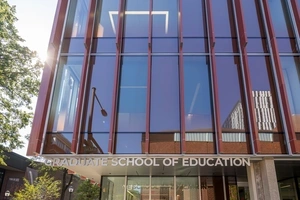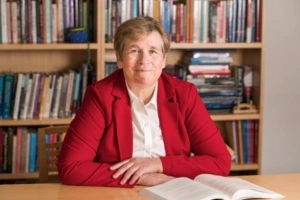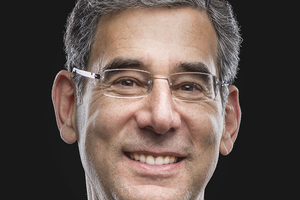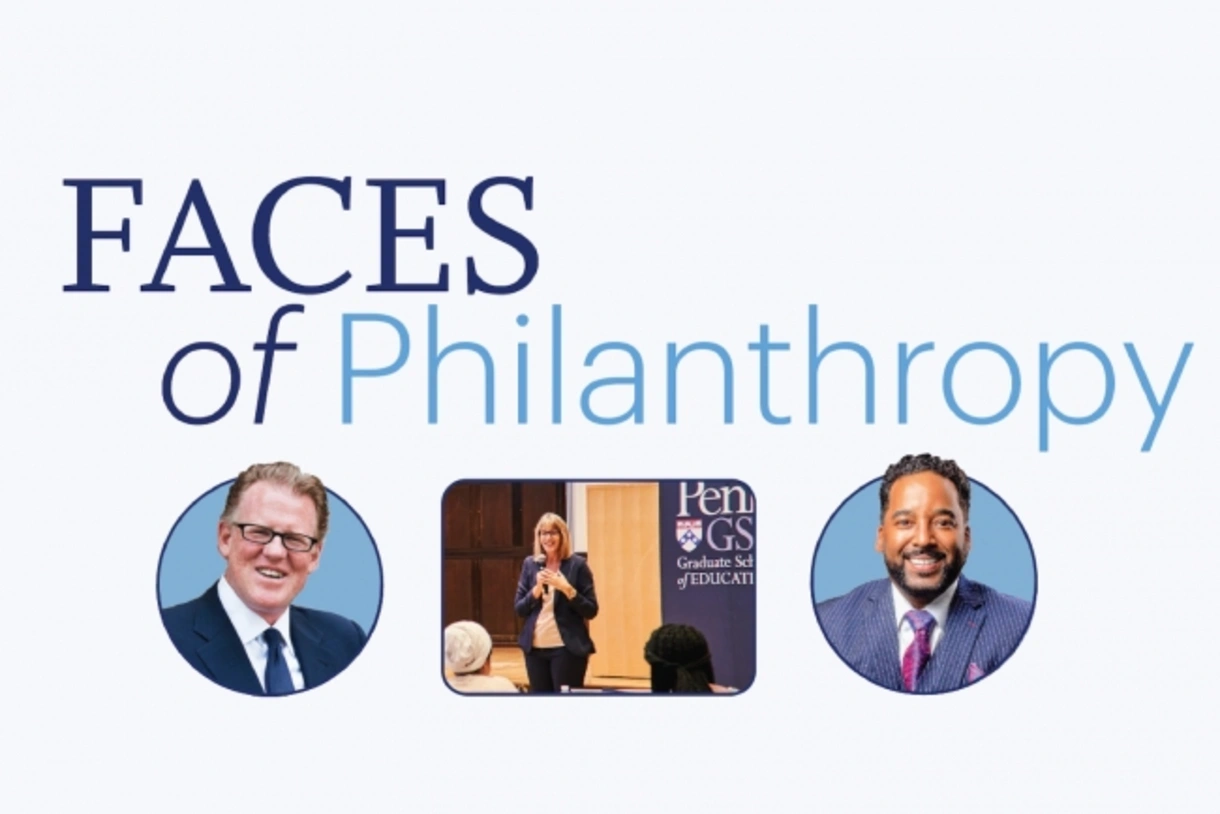
By Karen Doss Bowman

TRANSFORMING LIVES THROUGH EDUCATION
David M. Brush, C’82, spent much of his professional life volunteering with International Justice Mission, a global organization that protects people in poverty from violence and works to combat human trafficking and slavery, violence against women and children, and police abuse of power. Through his work, Brush met many people fleeing places, such as India, Somalia, and Syria. The experience revealed to him the hardships and suffering that refugees endure around the globe.
“I met people with enormous talent—literary and musical talent, for example,” says Brush, who lived in England and Spain for 25 years until retiring this year and returning to the United States. “They just were caught in the wrong place at the wrong time and made a decision to leave their country to protect the lives of their families.”
Brush and his wife, Karen Clark Brush, W’82, have demonstrated continuing concern and support for international students, educational access, and global citizenship through their philanthropy. Their Brush Family Foundation recently contributed to the Penn GSE Dean’s Discretionary Fund, enabling the School to provide critical support to four female students from Afghanistan and Pakistan.
“Their plight struck a chord with us,” Brush says. “We’ve always had an interest in helping people who were trying to escape unsafe situations, and our giving has always had a social justice element.”
The son of two teachers, Brush believes in the transformative power of education. Learning should be a lifelong pursuit, he says.
“For me, Penn just opened up so many avenues and opportunities and equipped me to take advantage of them,” Brush says. “Education doesn’t end when you leave the university. I’m constantly trying to learn new things and be open to new ideas.”
The Brush family hopes their support will make a significant difference in the lives of those four students. In turn, they hope the Penn GSE experience will inspire the students to pursue careers that will make a difference for others.
“For us to have the opportunity to marry our international inclination with the social justice element, giving others the opportunity to attend Penn the way we had—it just all fits together,” says Brush, adding that he and Karen both received scholarships and grants to support their undergraduate experiences.
“Hopefully, these students will someday have opportunities to do great things, or to continue that same ethos of supporting others who are maybe not as fortunate.”
FLYING FORWARD
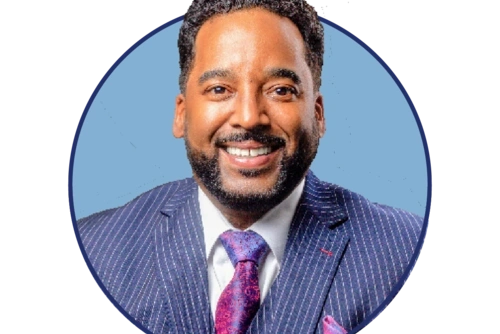
John Henry, an infrastructure attorney and founder of Grace3 Technologies LLC, remembers what it was like being the only person of color in professional spaces after graduating from Washington and Lee University School of Law in 1998 and during the early years of his career. He wants to change that trajectory for today’s Black youth.
“Education played such a critical role in my development and growth, and it gave me confidence and instilled a strong work ethic,” says Henry, a first-generation college and law school graduate who grew up in Center City Philadelphia. “I am exposed to next-generation technologies every day, and it’s imperative that African American students are exposed to the same best-in-class technologies.”
The growing ubiquity of drones is a key component of Henry’s vision. He envisions these small aircraft as tools to empower children—especially Black children and those from low-wealth communities—through greater exposure to STEM.
Henry spearheaded a partnership that brought the Drone Cadets—an education program accredited by STEM.org—to Penn GSE’s Office of School and Community Engagement’s (OSCE) summer program. OSCE facilitates and supports partnerships with Philadelphia schools and communities to improve children’s education outcomes and overall wellbeing.
For six weeks this past summer, about forty West Philadelphia middle schoolers worked with GSE students, learning to code and fly drones within spacious classrooms at Hamilton Elementary and the Penn Alexander School. Henry was excited about the kids’ response to the program, and the promise these machines hold for the future. The opportunity was co-funded by Henry’s company, Grace3 Technologies, and the National Black Empowerment Council.
There’s a huge demand for commercial drone pilots, says Henry. He hopes the students who participate in the drone programs will pursue Remote Pilot Certificates from the Federal Aviation Administration (FAA). Eligibility for licensure begins at age sixteen. That can lead to internships and open future job opportunities.
A lifelong learner, Henry was inspired by the students’ enthusiasm to pursue his own drone pilot license. He hopes to complete the requirements by the end of this year.
“Hopefully, I can inspire these young students to reach beyond their grasp, get educated in STEM fields, and link up with opportunities that will allow them to be productive members of our communities,” Henry says. “There’s a lot of talent in these low-wealth communities. I’m trying to mine that talent and illuminate it.”
By Karen Doss Bowman
FUELING EDUCATION ENTREPRENEURSHIP
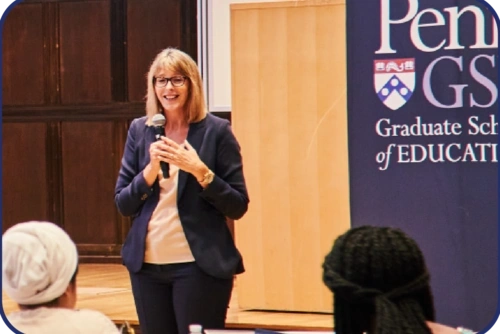
In January, Penn GSE launched a new, multi-faceted partnership with the Zurich-based Jacobs Foundation to support innovation in education and cultivate a network of education entrepreneurs.
The Jacobs Education Impact Fellows initiative, a three-year pathway for education venture development, acceleration, and ecosystem engagement, is at the core of the partnership. Penn GSE’s inaugural cohort of six Jacobs Fellows will join a community of fellows from institutions worldwide. They were recruited in October from Penn GSE’s Education Entrepreneurship program that, in addition to offering a master’s in education, offers a dual-degree track for students to earn an MBA from the Wharton Business School. They represent some of the best and brightest minds globally, all with an interest in leveraging innovation to improve the quality, reach, and effectiveness of education.
The venture acceleration program includes six to eight months of mentoring, skills building, innovation modeling, coaching, and networking. Next spring, the fellows will compete for a $25,000 Impact Prize and smaller funding awards to use as seed money to launch their innovations.
“We’re quite keen on cultivating a professional network of entrepreneurial leaders and change makers in education,” says Cathrin Jerie, program manager at the Jacobs Foundation. “This initiative is not just about what kind of venture these entrepreneurs are creating, but also about their long-term vision for the education sector. The Jacobs Foundation is committed to reaching change at the systems level, because we believe the education system needs to change profoundly.”
Penn GSE's first cohort of Jacobs Fellows has taken on a wide range of projects, from homeschooling and establishing a new primary school model for Saudi Arabia to supporting schooling for homeless children.
Founded in 1989 by entrepreneur Klaus J. Jacobs, the Jacobs Foundation invests in the future of children, providing educational and learning opportunities to help them thrive. The organization’s efforts typically focus directly on evidence-based education solutions for teaching children.
“We envision establishing an ed tech ecosystem focused on change leaders and evidence-based transformations in education,” Jerie says. “We share these values with Penn GSE and look forward to the innovative solutions that come out of this initiative.”
Learn more about Penn GSE’s giving priorities at penng.SE/GSEpriorities or contact us at 215-573-6623 or alumni@gse.upenn.edu.
This article appeared in the Fall 2022 issue of The Penn GSE Magazine.
Media Inquiries
Penn GSE Communications is here to help reporters connect with the education experts they need.

